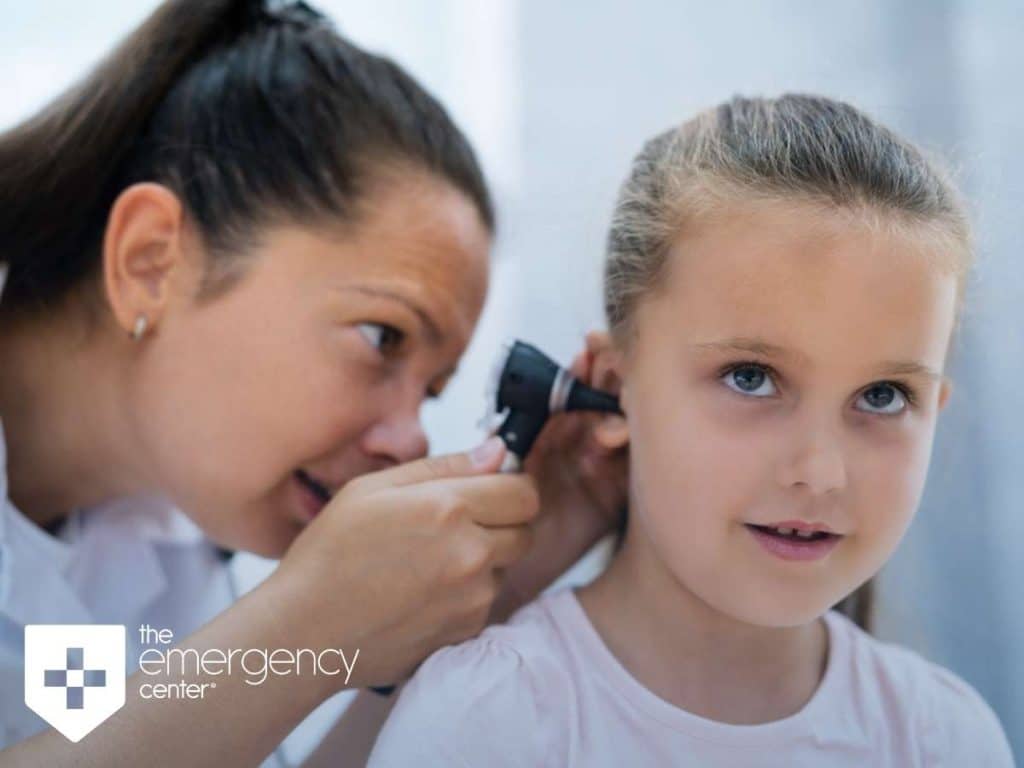Children’s ear infections are more common in the coldest months of the year. It is well known that winter is a time of year when temperatures drop – and illness rises. Children are especially prone to becoming sick during the winter season as their immune systems haven’t fully developed and their bodies aren’t as equipped to handle harsh conditions outdoors. Children’s ear infections, in particular, are more of a household issue during the colder months. The University of Maryland Medical Center (UMMC) estimates that 80% of children will have an ear infection before they reach age three. Half of those children will actually have three of them.

According to the Center for Disease Control and Prevention (CDC), there are three types of ear infections: acute otitis media (AOM), otitis media with effusion (OME) and what is more commonly known as swimmer’s ear (otitis externa).
These types are divided into two categories of ear infection: otitis media and otitis externa. Otitis media is more common in children, and it occurs more often in winter. It is an infection of the middle ear, and can be very painful and irritating.
The common cold is synonymous with colder weather. An estimate on the website for Hidden Hearing suggests that there are over 200 types of cold virus, and they increase the risk for ear infection. Inflammation begins with infections that are most likely caused by colds (throat, nose, respiratory problems) caused by infections, and then spreads to the ear. These can be either viral or bacterial infections.
In a healthy child, a tube that connects the throat with the ear canal, called the Eustachian tube, automatically drains fluids produced by the middle ear. Cold weather thickens these fluids, and infection causes inflammation of this tube. As a result, the path becomes blocked, and the fluids build up within the ear canal.
Since ear infections can be associated with other illnesses, they can often be mistaken for flu-like symptoms. The most recognizable symptom is ear pain, but there are others.
Just as with the common cold, ear infections may be treated with plenty of fluids and pain relievers. The proper vitamins and over the counter medications are also helpful. In addition, ear drops and antibiotics may also be prescribed by a doctor. It is important to also avoid lit fireplaces as children with an ear infection should keep away from smoke, as it tends to make the symptoms linger. They should also remain indoors as much as possible.
A few simple lifestyle adjustments during winter will help reduce the risk of ear infections in children.
Children love to play outside during a snowy winter. Snowmen, downhill sledding and snowball fights make winter a fun time of year but an ear infection can ruin a perfectly good snow day. Kids can still play outside while taking the proper precautions during the colder months.
Even though an ear infection usually goes away on its own within three to four days, it is never pleasant-especially for a child. By taking the necessary steps to minimize the risk for infection, they will have a safer and healthier winter. Children’s ear infections can be incredibly painful and may escalate suddenly at any time of the day or night.
If your child’s ear infection worsens, visit The Emergency Center in San Antonio. We are open 24 hours a day, 365 days per year with NO WAIT. Contact our freestanding ER immediately!
The Emergency Center
San Antonio
11320 Alamo Ranch Pkwy
San Antonio, TX 78253
Phone: 210-485-3644
Conroe
4019 I-45 N,
Conroe, Texas 77304
Phone: 936-247-9457
Is your nausea more than just an upset stomach? Learn about the causes of nausea…
Experiencing numbness or tingling? Discover the causes and know when to seek emergency care for…
Experiencing abdominal pain? Learn what it could mean by location and when to visit the…
Is your skin redness a sign of something serious? Learn about different types of skin…
Why are ER wait times so long? An emergency room physician explains key delays and…
Are you aware of the dangers of carbon monoxide? Learn prevention tips, symptoms, and how…